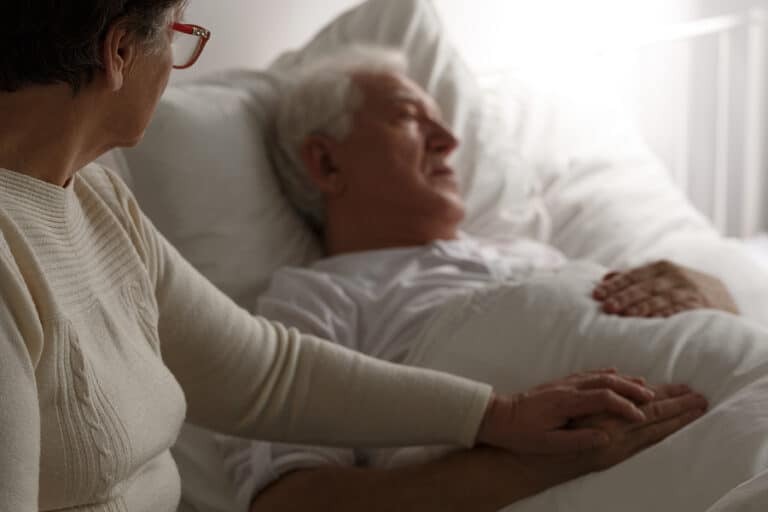Pressure ulcers, more commonly called bed sores, are a type of wound your senior might get if she’s not very mobile or if she’s bedridden. These sores can be very dangerous because they can become infected very quickly.
Bed Sores Start out as Discomfort

Bed sores don’t start out as an injury or anything even remotely scary. Most often, they’re simply a spot that feels a little sore to the touch or that feels a bit stiff or uncomfortable. It’s when the pressure becomes so bad that skin breakdown starts to occur that bed sores truly become a problem. A bed sore can progress very quickly from a red, raw area to an open wound, which is why they’re so very dangerous for your senior.
Common Locations for Bed Sores
These types of wounds start to form in areas that are a little bonier and that don’t have as much natural padding. This is the case because that type of location puts even more pressure on the skin and muscle in that area. It also promotes difficulties with circulation, which also contributes. Areas like hips, elbows, and shoulder blades are extremely prone to develop bed sores. Your senior’s tailbone, heels, and knees can also develop problems depending on her position.
Talk to Her Doctor if You Suspect Bed Sores
If you’re noticing raw, red patches on your senior’s skin or her joints have areas that seem to be tender forming, talk to your senior’s doctor right away. The cause of these issues might be something else entirely, but it’s important to at least look into what’s going on. If you can rule out a bed sore, that’s something you won’t have to worry about at least and you can work toward solving the actual problem.
Put Together a Plan to Prevent Bed Sores
The best way to be proactive about dealing with bed sores is to prevent them from happening in the first place. Your first line of defense is to learn what bed sores look like in the beginning stages and what you can do about them. Hiring senior care providers can be an excellent idea because they can be on the lookout for signs and help you to spot bed sores much sooner. Helping your senior to change positions frequently ensures that she’s able to relieve pressure on one particular area. Get help for your senior immediately if you or senior care providers start to notice that she’s developing a bed sore.
Bed sores are something that you can help to prevent for your senior, but you have to remain vigilant. Make sure that you know what to look for and that you take action as soon as possible.
If you or an aging loved one are considering hiring Senior Care in Anderson, SC, contact Heart of the Carolinas Home Care at 864-991-3116. Providing Home Care Services in Greenville, Simpsonville, Greer, Anderson, Spartanburg, Mauldin, Seneca, Laurens, Charleston, Columbia and the surrounding areas.
- How Home Care Supports Seniors Who Are Hard of Hearing - March 28, 2025
- Why Seniors Should Consider Companion Care At Home - March 10, 2025
- What Happens As Seniors with Dementia Lose Competence? - February 26, 2025

